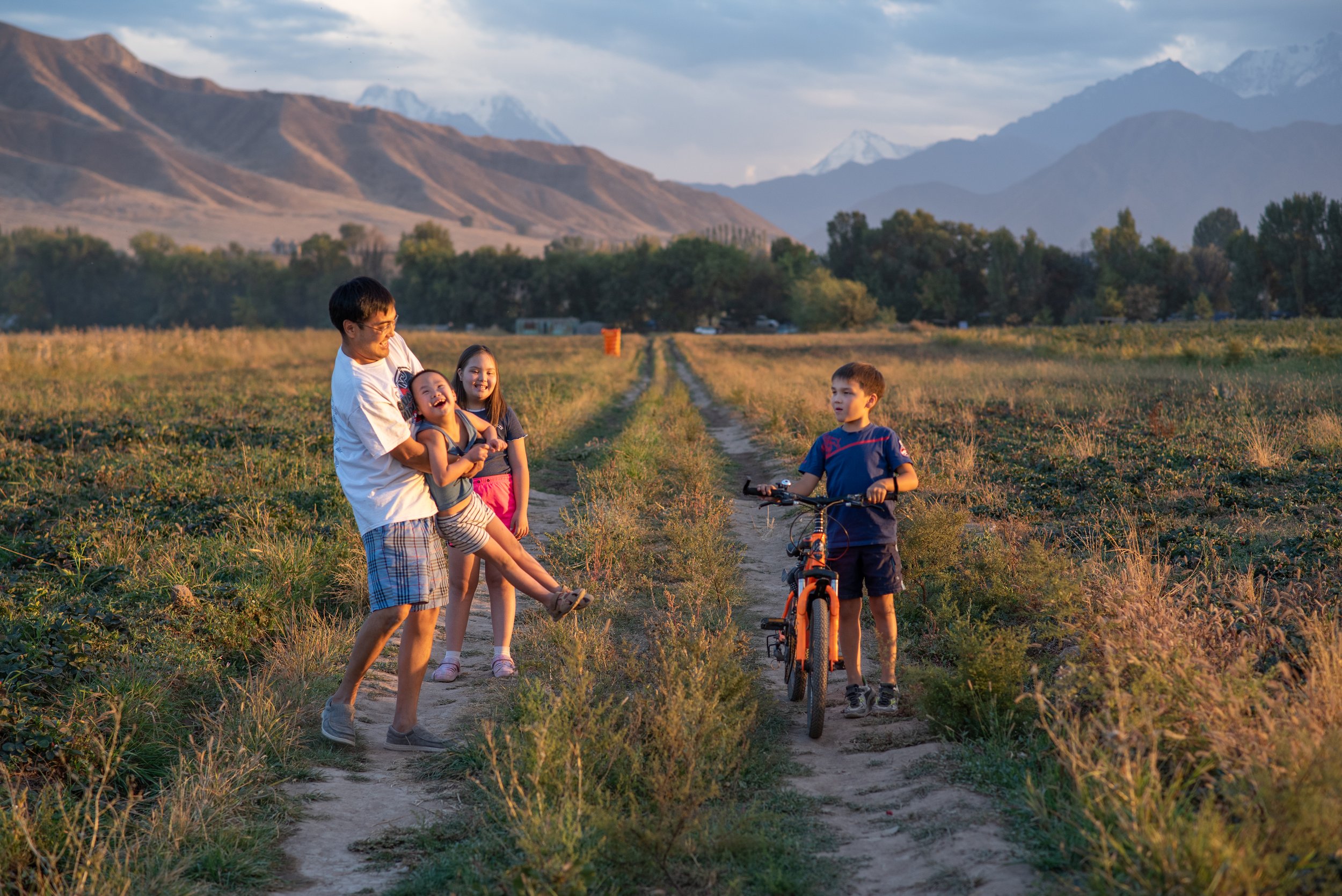
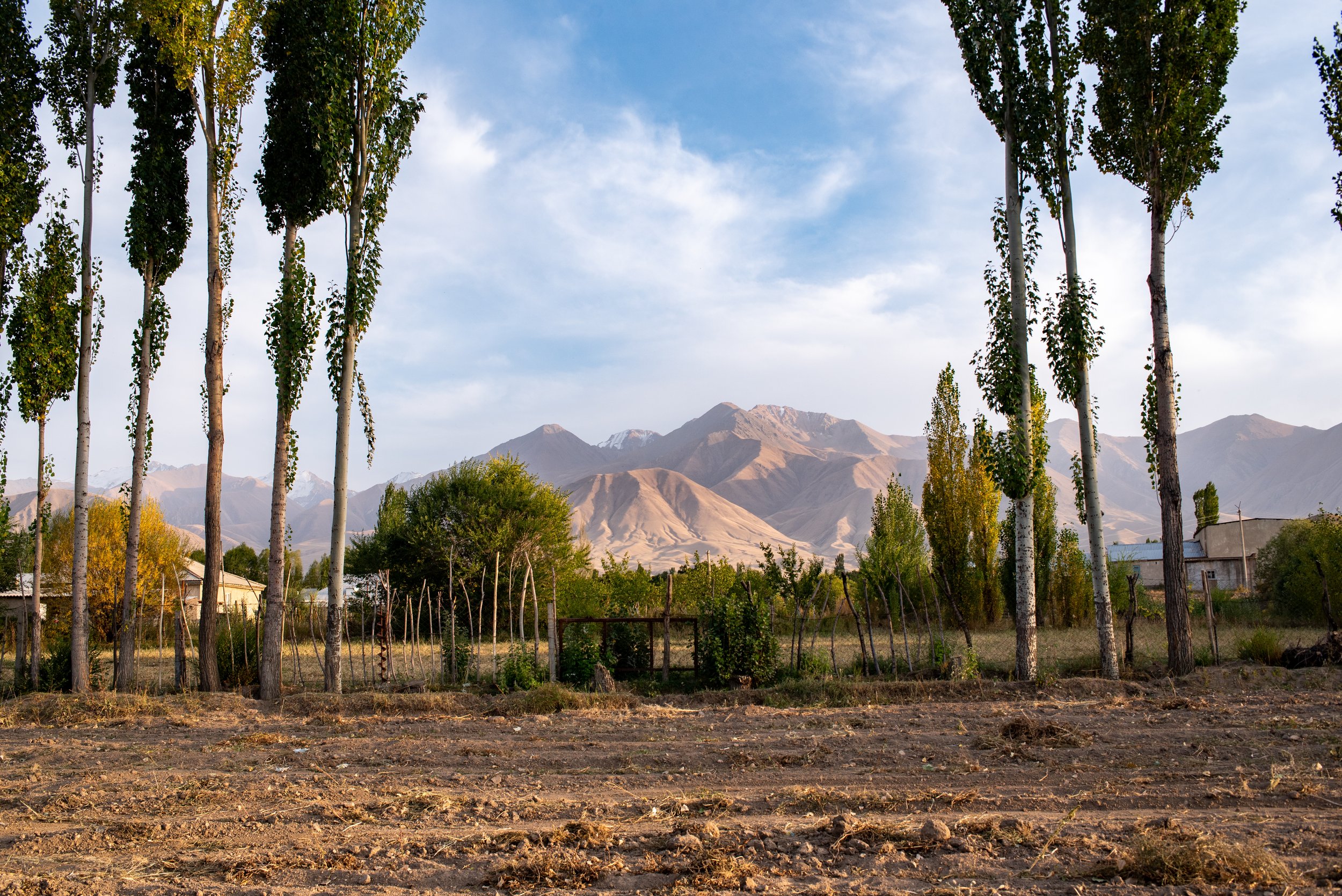
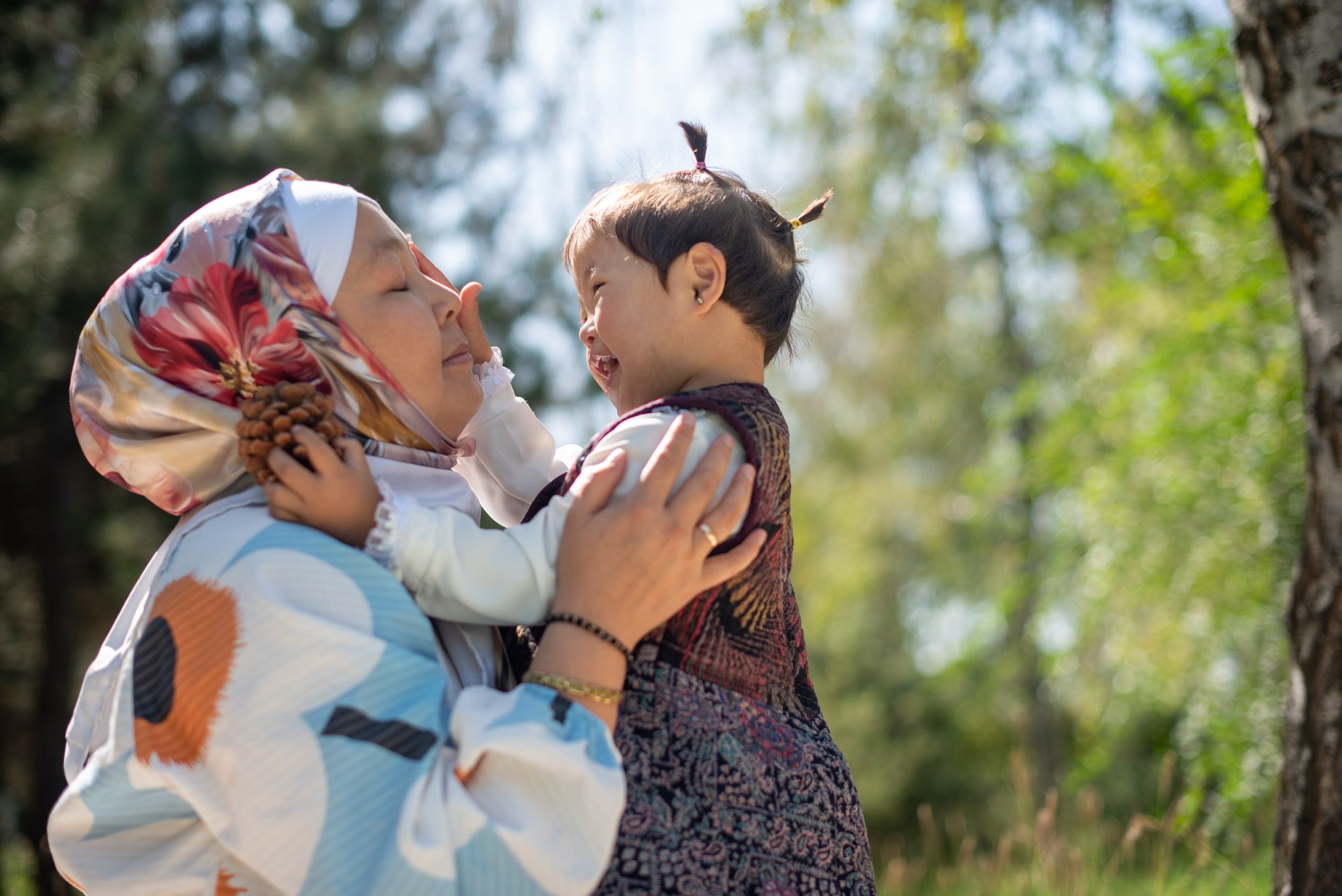
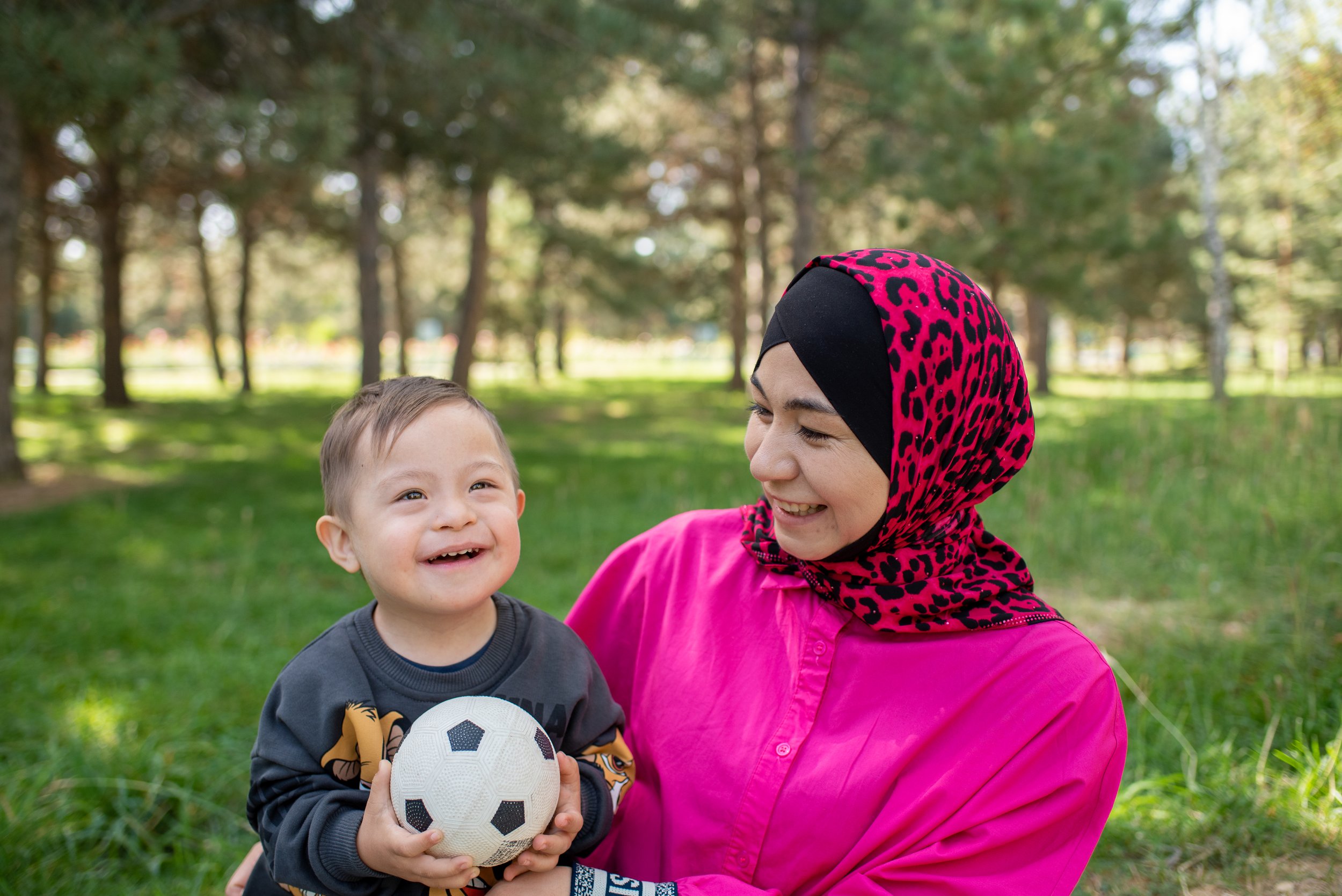
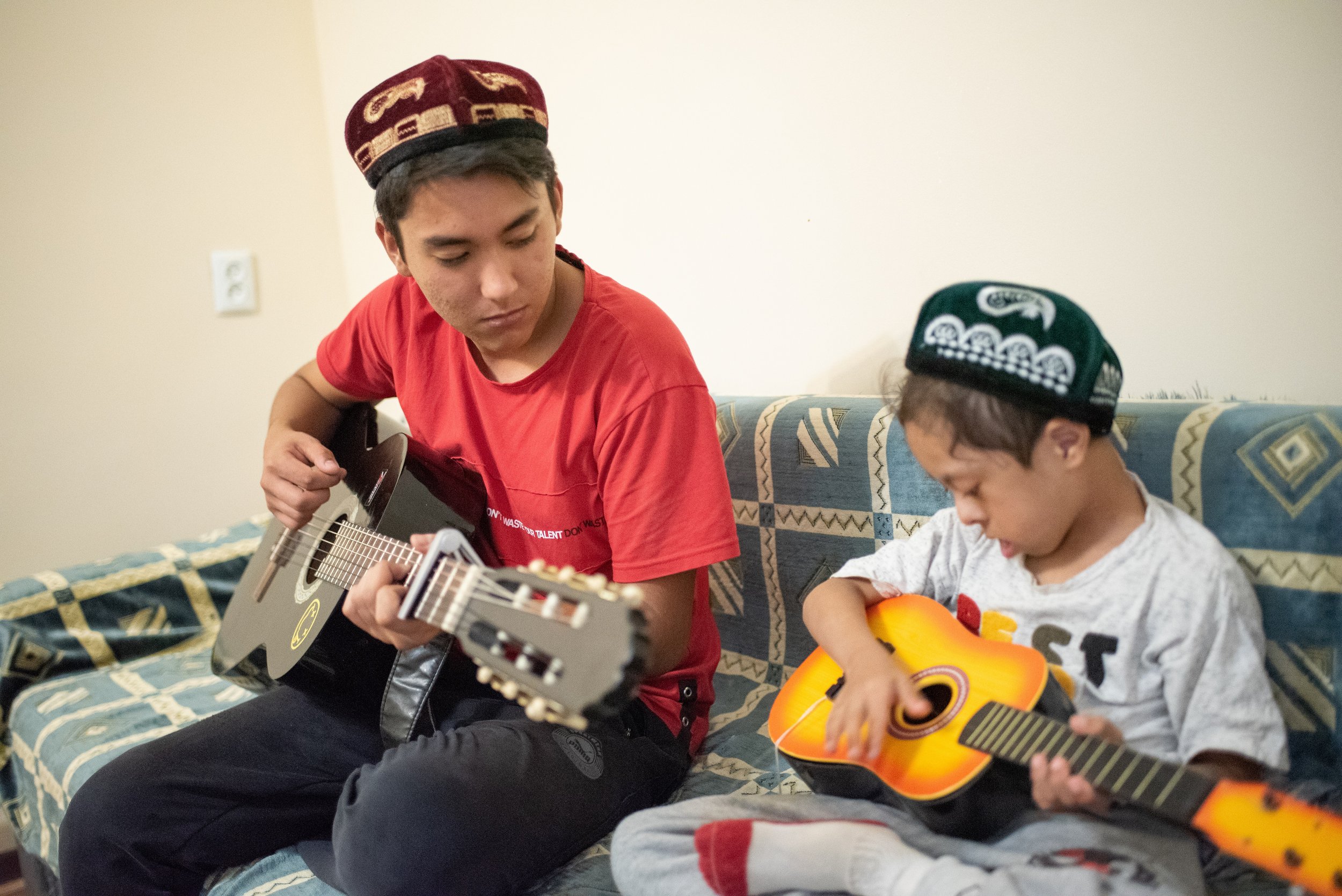

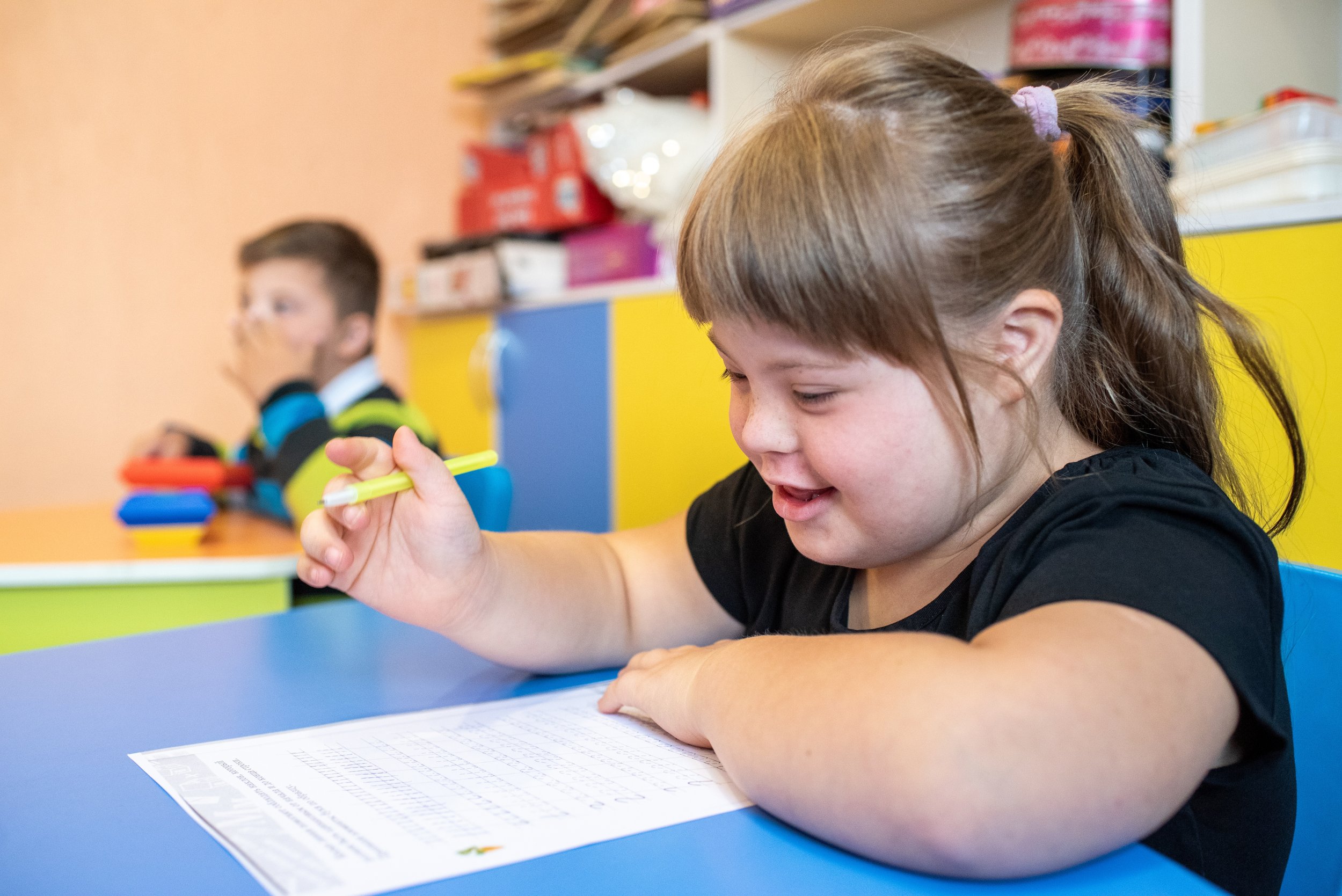
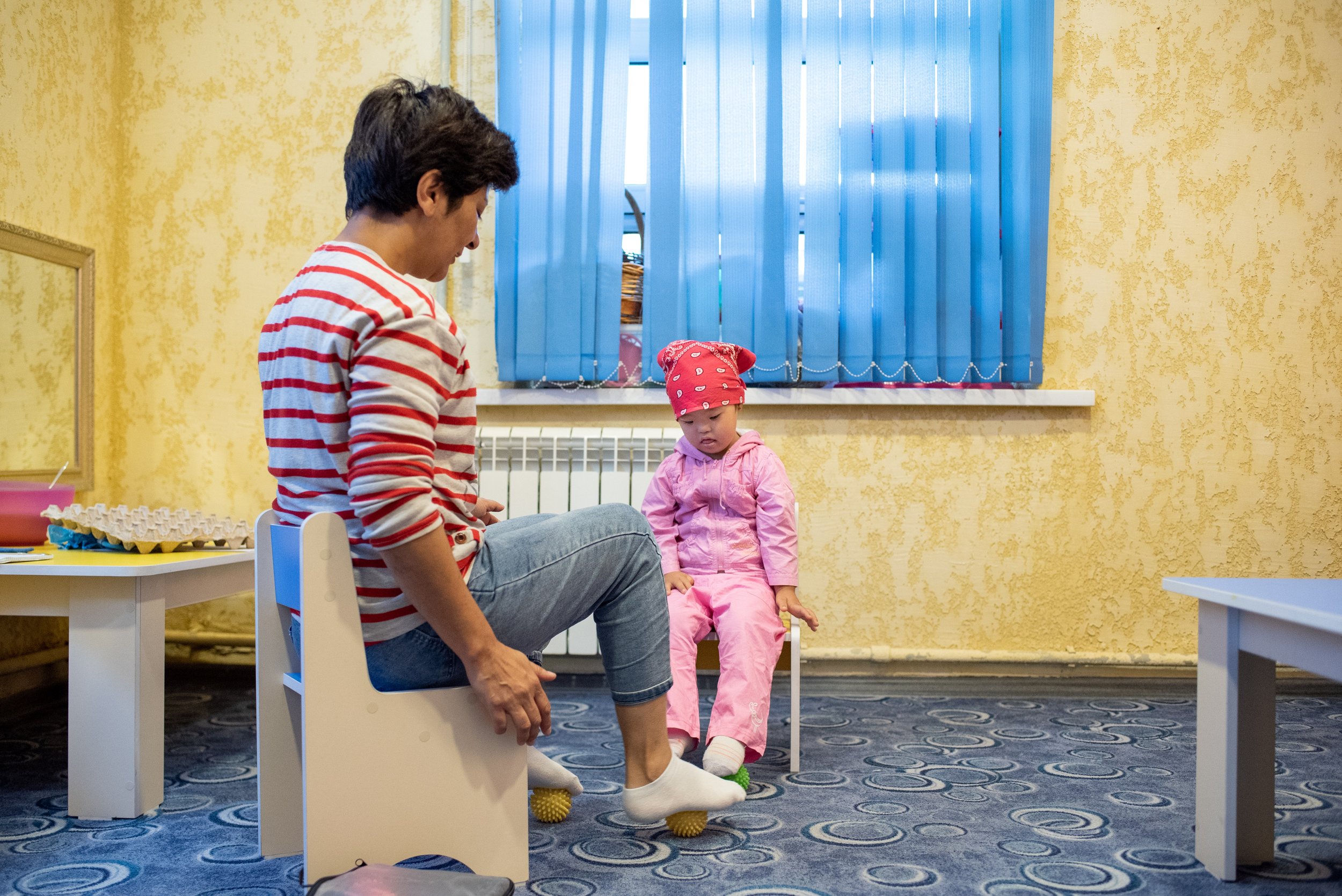
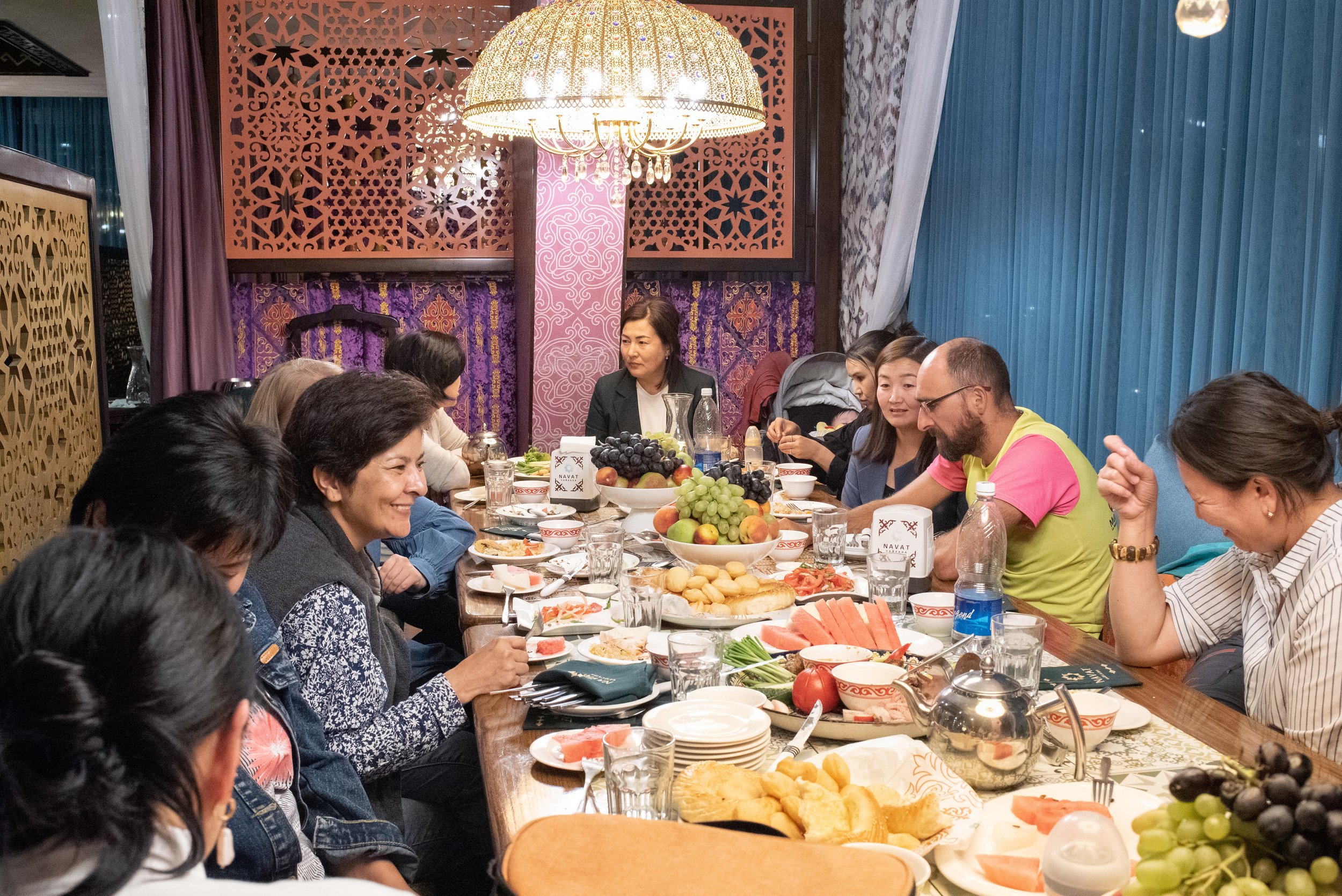
IMAGES BY JEFFERINE JEAN-JACQUES
WORDS BY DARSHEL DIAZ AND JEFFERINE JEAN-JACQUES
STORY CONSULTING BY VANESSA TIGNANELLI
EDITED BY NEHAA BIMAL AND VANESSA TIGNANELLI
Abigel swings from the trees as her mother watches nearby. She runs, plays, and giggles like any other child. However, if passersby were present, it wouldn't be unusual to catch worried glances and hushed whispers. Abigel's mother understands their potential concerns. In those instances, a wish stirs within her—the desire to sit down and enlighten people about the misconceptions surrounding raising a child with Down syndrome.
In 1959, French physician Jérôme Lejeune identified Down syndrome (DS) as a naturally occurring chromosomal condition where babies are born with an extra copy of chromosome 21. Down syndrome, affecting 1 in 1100 live births worldwide, varies in severity and comes with accompanying health problems, including heart defects or intellectual and developmental issues, but it is unique to the individual. While there is no cure for this condition yet, having a better understanding of Down syndrome and early interventions can help improve the quality of life for children and adults with DS.
In Kyrgyzstan, a country in Central Asia, a harmful stigma remains attached to those with DS. Prenatal diagnosis of DS is not widely available, particularly in rural areas, so a family will frequently discover their baby’s condition only after birth, and will not have the resources to adequately prepare. In many cases, parents decide to leave their babies in the hospital. It is estimated that 80-90% of babies born with DS are left and subsequently placed in orphanages for children with disabilities—and parents looking to adopt from orphanages usually do not apply for children with Down syndrome.
While the situation is steadily improving, with more and more parents deciding to keep and raise babies with DS, around 40-50% of these babies are still left in orphanages today.
Dina and Nurmat’s daughter, Abigel.
For many new parents, receiving a DS diagnosis can be difficult to digest, especially if emotional, financial, and psychological support is limited. This was the experience of Dina and Nurmat Eshaliev. Discovering that their child had DS came with an overwhelming mix of emotions—disbelief, fear, shame, and an immense sadness. These feelings became constant companions in the lives of these new parents. Yet determined to rise above their pain and provide a good life for their child, they sought out the help and resources they needed, which proved challenging in their homeland of Kyrgyzstan where information is not readily available.
Dina and Nurmat recognized that the decision to abandon children with DS was the outcome of misinformation and a lack of resources. Instead, they chose to obtain factual information about DS from outside sources.
Dina and Nurmat credit organizations like The Downside Up Family Support Centre out of Russia and Father’s Joy out of Texas for providing more scientific-based information, which offered positive and hopeful solutions for children with DS and their families. Through this process, they learned about the importance of accepting the diagnosis, the challenges that their child may experience, and the many ways early intervention can help them develop optimally. This newfound empowerment led to a desire to help others in their community in the same situation.
Six years after their daughter Abigel was born with the Trisomy 21 disorder (one of the three genetic variations that causes DS), Dina and Nurmat launched their organization, Sunterra - Public Foundation (Sunterra), alongside a group of parents who also have children with DS in Kyrgyzstan.
“Children with Down syndrome are called ‘sunshine’ and therefore we called our foundation Sunterra, meaning the territory of the sun,” says Dina. “Our mission is to protect the rights and interests of people with Down syndrome, to enhance education and development resources for children with DS, and provide psychological and informational support for parents and families of loved ones with DS.”
Dina shares a laugh with little Sayan.
The first few months were daunting, as they knew that people with DS face social exclusion in their community. Due to the widespread stigma of DS, a history of mother blaming, and a Soviet precedent of institutionalization in Kyrgyzstan, many children with DS continued to be unacknowledged or hidden from society. However, their organization has helped hundreds of parents and children with DS to date.
“We were fortunate enough to have the educational background; we spoke English and had connections with people from various parts of the world, which gave us access to information we knew people from our home country would not have. We needed to let our community know that it’s okay to have a child with DS, and they can live a fulfilling and normal life.”
Amantur and his older brother Aziret look at pictures in a book.
"We strongly felt it was our calling, our mission, and we just had to do it,” Dina says. “I felt like God had prepared us for this life. We were fortunate enough to have the educational background; we spoke English and had connections with people from various parts of the world, which gave us access to information we knew people from our home country would not have. We needed to let our community know that it’s okay to have a child with DS, and they can live a fulfilling and normal life. Nurmat was the first person to push this work, feeling like it was his duty, and he believed it would help me get out of my depression. He was absolutely right.”
Jamal and her son, Juma, live in rural Kochkor. Juma was born with DS; however, his mother did not know. She would tell people he was delayed because he experienced an electrical shock as a toddler. He went to school with neurotypical children. He currently lives with his mother.
Sunterra is a resource centre, with its flagship office located in the capital city of Bishkek. Since opening its doors in 2016, Sunterra has opened two additional branches in the regions of Balykchy and Osh, aiding hundreds of families across the country. The centre offers several services such as counselling for parents and early intervention programs, which are crucial in the development of children with DS. These children can experience hearing loss, heart defects, immunity issues, and blood disorders. Awareness of these conditions gives parents a head-start on getting specific tests performed so treatment can begin immediately. At Sunterra, therapists and administrators also determine a specialized plan for each child, which includes physical, speech, and occupational therapy.
At times the local hospital will have Dina visit new mothers who have just given birth to a child with DS. Dina’s goal is to support mothers who are considering giving these children up for adoption in making a more informed decision. During one of these visits, she fell in love with a baby boy who was given up for adoption. After much thought, Dina and her husband decided to make him a part of their family.
Eliazar shares a hug with his mom. Dina cannot imagine life without him.
“In Kyrgyzstan, it is considered disgraceful by some people to have a Disabled child. A considerable emphasis is placed on what others will think or say. Whether overtly or subtly, many moms feel a lot of judgment and criticism from their communities and their families,” says Dina, who has personally witnessed the weight of this societal pressure on mothers who are already dealing with the challenges of raising neurodivergent children.
Sunterra has been fighting to change the mindset of Kyrgyz society away from one which places blame on the mother for having a Disabled child. This culture of blame often leaves these mothers feeling isolated and overwhelmed, amplifying the already complex emotions that come with caring for a child with Down syndrome. Rather than feeling shame, Dina encourages these women to understand that it is not their fault. DS can develop in any pregnancy, regardless of the mother’s diet, age, or genetics. “The moms at Sunterra have come to learn that their children are not a burden as many in society assume,” she continues. “They each have unique personalities and desire things that other children desire—whether it be their favourite plush animal, or pre-teen Abigel wanting a cell phone to text her friends, or staying up-to-date on the latest dance moves like 4-year-old Amantur.”
Siblings Abigel and Eliazar enjoy the sunshine and breeze.
“In Kyrgyzstan, it is considered disgraceful by some people to have a Disabled child. A considerable emphasis is placed on what others will think or say. Whether overtly or subtly, many moms feel a lot of judgment and criticism from their communities and their families.”
This mother helps her son with the lessons at Sunterra. It is crucial for parents to participate in their children's educational development.
The goal of Sunterra is to help children with DS become as independent as possible. This means preparing them to be mainstreamed into regular school and to navigate the intricacies of everyday life.
The organization partners with institutions such as schools, educators, and hospitals. Sunterra guides schools on curriculum development and on finding the best approach to smoothly integrate children with DS into their programs.
Children Pro School (CPS) is a daycare that accepted its first child with Down syndrome this past February. Sayan, who is three years old, has been a member of Sunterra since he was four months old. Sayan and his younger brother both attend this daycare. Nurjan, who is the founder of CPS, has witnessed much growth in little Sayan. Initially, remarks Nurjan, “it was difficult for him; he would not participate in activities, and he was not as social as he is now.” Nurjan hopes to admit more Disabled children to CPS. However, she realizes the limitation of not having specialized teachers to support them properly and facilitate a safe space.
With all the work being performed at Sunterra's main center in Bishkek, Sunterra-North in Balykchy, and Sunterra-South in Osh, much progress has been made in just six years, and the children have experienced a happier life because of it. Sunterra has given families the strength to keep their babies and raise them in loving and supportive homes. The founders of Sunterra, and the parents involved, are helping to abolish the stigma that these children are less than others, or cannot lead productive lives.
At Sunterra, a dedicated and tireless staff gives their time and energy to these families and to the development of children with DS. Dina shares, “Without these caring and dedicated individuals, none of this would be possible. What makes Sunterra work so efficiently is the team we have. We have never wanted to hold onto “being in charge” and always “control” everything. We wanted to involve as many parents in leadership as we could. Creating a good team was key for us. All the credit goes to the whole community, not to individuals."
Everyone hopes that their work will help inspire a more accepting society that will make room for all children to thrive. In the meantime, every step that Sunterra takes helps another sunshine child smile.
Learn more about the important work that Sunterra - Public Foundation is doing.
Class in session at Sunterra.













